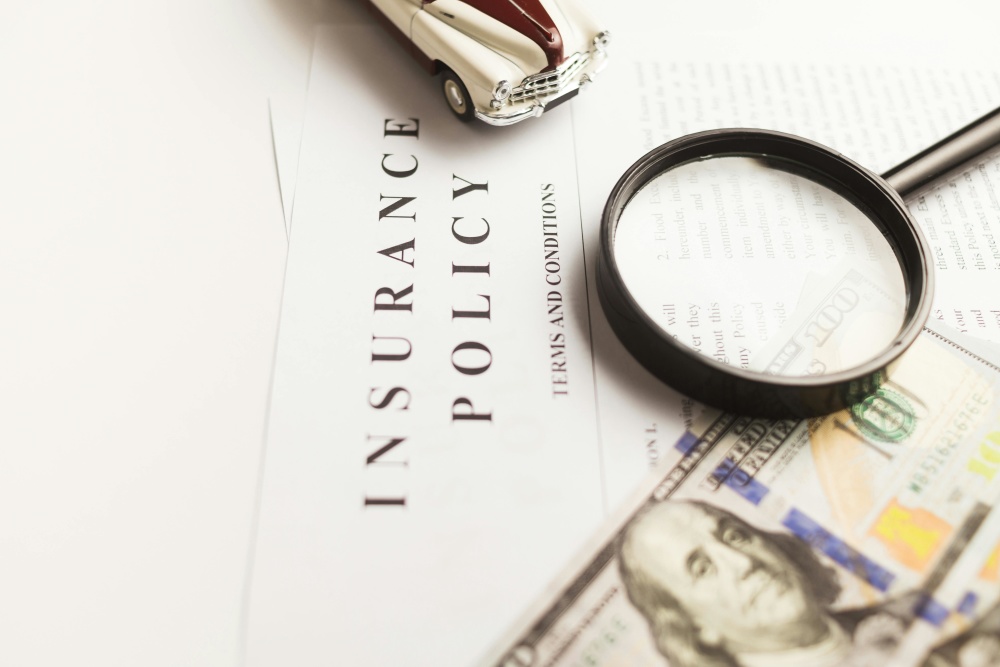Updated April 23, 2024
Car Insurance In Japan: A Guide For Expats
As a responsible adult, you need to have your bases covered when it comes to car insurance. So if you're planning on driving in Japan, you'll need to figure out how to get insurance.
Like in many countries, there’s compulsory vehicle insurance in Japan too, but does that cover everything? As an expat, I know that navigating such serious matters is difficult, so I’m glad you’re here.
I’ll teach you all about mandatory car insurance in Japan, as well as the other available car insurance types you can go with to feel even more at ease.
I’ll also introduce the cheapest car insurance providers in Japan, along with some of the top-rated providers, so that you can make the most informed decision.
Car Insurance In Japan, Explained
There are two main types of car insurance in Japan.
I already mentioned that there’s mandatory car insurance, which is called Compulsory Car Liability Insurance, or Jibaiseki. However, as I’ll explain below, this insurance doesn’t cover everything.
There’s another type of car insurance, known as optional car insurance, or Ninni Hoken, that covers additional stuff. Let’s look at each one in greater detail.
Mandatory Car Liability Insurance In Japan (Jibaiseki Hoken)
In Japan, everyone who owns a car must have compulsory car liability insurance, called Jibaiseki.
However, emphasis is on the “liability” here, as this insurance doesn’t cover personal injuries and property damage. So, it’s more of a measure set by the law to ensure that all cars have the bare minimum coverage at the very least. This is why many people also opt for voluntary car insurance, which offers much more extensive coverage.
When you purchase a car in Japan, the mandatory car liability insurance is usually handled by the agency selling it, whether it’s brand new or used. Once you buy a car and its mandatory insurance is paid, you don’t have to do anything for the next three years.
After you’ve had the car for three years, you need to take it to inspection every two years and renew the Jibaiseki Hoken.
Be careful not to put off the inspections for too long, as it’s easy to forget, and doing so can get you into trouble. Having no mandatory insurance on your car is punishable by a prison sentence of up to one year or a fine of up to 500,000 JPY.
Even if you’ve paid for the mandatory liability insurance, be sure to have the certificate in the vehicle while driving, because failing to show the certificate when asked is also punishable by a fine of up to 300,000 JPY.
Coverage Limit of Mandatory Car Insurance
While the coverage amount is up to you when it comes to optional car insurance, mandatory car insurance comes with stricter rules, which include a coverage limit set by the law.
So, no matter which company you go to, the insurance benefits offered for mandatory car insurance are as follows:
In case of injury: Up to 1.2 Million JPY
In case of death: Up to 30 Million JPY
In case of permanent disability: Up to 40 Million JPY
Keep in mind that these are maximum values, so depending on who’s at fault in an accident, these numbers may be reduced accordingly.
How Much Does The Mandatory Car Liability Insurance Cost?
The premium you’re required to pay for the mandatory car insurance depends on whether the vehicle is for personal or commercial use.
If you own a vehicle for personal use (自家用乗用車), you’re required to pay a premium of 17,650 JPY for every two years.
If, on the other hand, you own a vehicle that’s operated for commercial purposes (軽自動車), the premium is 17,540 JPY for every two years.
Here’s an article from the official government website analyzing the premium rates over the years, which shows that the premiums have been lowered significantly in recent years due to increased road safety and lowered traffic accident rates in the country.

Optional Car Insurance Japan (Ninni Hoken)
Optional car insurance, or ninni-hoken, effectively fills in the gaps that are left by compulsory insurance and can cover damages such as property damage and physical injury to pedestrians due to accidents, theft, and natural disasters.
To take out optional car insurance, you can either:
Purchase your optional car insurance online, or
Go to an insurance specialist/agent.
The biggest advantage of purchasing insurance online is that it’ll cost you less as there will be no agency fees. You also have the luxury of taking your time and considering all of the options available before purchasing anything.
Taking out your insurance directly online is also beneficial due to generally lower premiums as the intermediate costs involved are much lower. Plus, some providers even offer a 24-hour hotline for accidents and emergencies.
The only downside is properly understanding all of the terms and conditions involved.
So, if you don’t want to deal with the research, you can purchase the optional insurance through an agent, and they’ll tell you all about the details, helping you decide what’s best for you.
What To Look For In A Car Insurance In Japan: The Coverage
Now that you know the difference between mandatory and optional car insurance in Japan, let’s take a look at some of the essentials and bonuses of optional car insurance.
The Usual Components of An Optional Car Insurance
Here are the main things you want your optional insurance to cover if you want absolute peace of mind.
Property Damage Liability
If you get in an accident, your vehicle might not be the only thing that gets damaged. Having property damage liability coverage in your insurance ensures that the damage to other vehicles, as well as to traffic lights and signs, roads and pavements, and even shops, will be covered by your insurance.
Going for unlimited coverage, if possible, is the best option here.
Liability for Injuries Incurred by Third Parties
Similar to property damage liability but for humans, this type of liability covers the injury costs incurred by third parties, such as pedestrians who are injured in an accident. If you have this coverage, your insurance will handle a portion or the whole sum of costs arising out of injuries you may accidentally cause to others.
It’s recommended that you get unlimited coverage for third-party liability if possible.
Personal Injury
Most optional car insurances also cover personal injury incurred by the driver, as well as the other passengers in the car, in the event of an accident.
On average, it’s recommended to have at least 30 million JPY coverage, but if you want complete coverage, I recommend at least 50 million JPY coverage.
Passenger Injury Liability
Passenger injury liability covers the injuries incurred by the passengers in the car during an accident. However, unlike personal injury coverage, it doesn’t cover actual costs down to the exact amount but provides a lump-sum compensation for overall injuries incurred.
The recommended coverage amount for passenger injury liability is around 10 million JPY.
Self-Damage
Self-damage is a specific coverage for an accident where only one vehicle is involved, and it provides compensation for the injuries incurred by the driver, or in the event of the death of the driver.
The recommended coverage amount for self-damage is 15 Million JPY at the very least.
Coverage For The Uninsured Party
This is insurance for the third parties involved in the accident that aren’t insured themselves, and it compensates for injuries or death.
Additional Coverage: Extras To Look Out For
In addition to the points I explained above, most insurances come with additional coverage, support, and services. Here are some of the most common ones you can familiarize yourself with.
Roadside Assistance Coverage
Roadside assistance helps you out when you’re stuck on the road, and some insurance policies cover the costs of roadside assistance, which is a great bonus and should be considered.
That said, some companies present it as an optional add-on you can purchase. If that’s the case, I recommend considering how often you drive long distances or go out of town with your car, and whether paying for this regularly is really worth it.
Vehicle Insurance
Vehicle insurance covers any damage that happens to your car as well as theft and damages that occur due to unforeseeable natural disasters.
Coverage For Legal Fees
Like roadside assistance, some insurance companies offer coverage of legal fees that may arise due to traffic accidents, and this is a nice bonus you may want to consider if that’s the case. That said, some companies offer legal fee coverage as an add-on you can purchase. If this is the case, I recommend comparing premiums among different companies and seeing if you can find a policy that includes it for a reasonable price instead.

Purchasing Car Insurance In Japan: The Documents & The Process
You now know your insurance types and what coverage you need in your policy. So, as a foreigner, in order to take out your insurance, the first thing you need is your driver’s license.
I talked about driver’s licenses in Japan in great detail in another post, which you can refer to if you’re wondering if you can use your foreign driver’s license in Japan.
Essentially, you can use an international driver's license, a Japanese driver’s license issued in Japan, or your driver’s license that you received in your home country and converted to a Japanese one.
In addition to your driver’s license, you’ll also be required to submit your vehicle registration document, and some insurance companies may require you to have a Japanese bank account to make the premium payments later, which you should keep in mind.
If you don’t have a Japanese bank account yet, check out my post on banking in Japan for foreigners.
The Japanese Requirement
Having said all that, even if you have all the required documents and a valid driver’s license to apply for insurance, an important point to consider as a foreigner is your ability to speak and understand Japanese.
As insurance policies are complex and require the signee to understand the details of the policy properly, it’s a legal requirement for the signee to understand the policy in the original language, Japanese. So, while there are workarounds, speaking Japanese can help you out a lot here.
For instance, you can have a family member or relative who speaks Japanese to make the insurance policy. However, this solution may not work for everyone, as this person must be named the official “policyholder.”
In some cases, it may not be an issue for someone else to have the insurance in their name and be the policyholder. Most insurance policies have the signee as the primary driver and allow spouses to be secondary drivers, for instance. However, each insurance company has different policies regarding who else can be secondary drivers, so this isn’t a surefire method to skip the language requirement.
Besides, even if your spouse speaks Japanese and you get the insurance under their name, you’ll still need to communicate in Japanese in the event of an accident or emergency to contact the company.
So, even if you can find a workaround initially, speaking and understanding Japanese eventually becomes a necessity when it comes to insurance. Lucky for you, you can read my comprehensive post on the best Japanese learning tools, as well as whether you should attend a Japanese language school to get started.
Should you decide to attend one, I strongly recommend checking out my article on the best Japanese language schools in Japan as well.
Top Car Insurance Companies In Japan
If you have your documents, speak Japanese, or already have a Japanese-speaking spouse, you’re set to purchase your insurance right away. That said, there are many providers out there, and it’s hard to pick one.
If you’re okay with doing your own research and want to personally compare all the available options, I recommend checking Kakaku.com. Here, you can find all the providers and get quotations from all of the companies to decide which one is the best for you.
That said, not everyone has the time, and that’s why we’re here to help. Let’s look at some of the best companies that provide car insurance we’ve gathered, so you can make an informed decision with ease.
Best Overall: Sony Damages Insurance
Sony Insurance is one of the leading car insurance providers in Japan. The company arguably provides the best customer service among its competitors and has the highest satisfaction rate, which makes it our best overall choice for foreigners.
Sony Insurance is well-trusted and has a long service history, but that’s not the only reason it's a leading provider.
As a customer, you get 24/7 support in the event of an accident, complete with roadside assistance. What’s more, you also end up paying reduced premiums as they’re calculated based on your estimated annual mileage.
Don’t let this lead you into thinking you may end up paying more because if your actual mileage is lower than your estimated one, the amount you paid in excess simply rolls over to the next year.
All that said, the best thing that makes Sony a great all-rounder for foreigners is that the company also provides emergency support in 18 other languages, including English.
The only downside here is that Sony Insurance has a completely Japanese website, which is common with insurance companies in Japan. Use a translation tool to check for additional details and find the full list of languages supported.
The Runner-Up: Saison Car and Fire Insurance
Saison Car and Fire Insurance consistently ranks among the top insurance providers in Japan, and it has good customer satisfaction overall.
Like Sony, Saison is as trustworthy as it gets: No surprises here, exactly as you’d expect from your insurance provider.
With Saisoni, your premiums are calculated based on your age, which may not be everyone’s cup of tea, but it sure makes the company popular among adults over 40 years old.
Keep in mind that the calculation is based on the primary driver’s age, which you may want to be wary of if you’re taking the insurance out under a relative’s name.
Saison Car and Fire Insurance lets you pick the best coverage for your conditions, but their website is also in Japanese. Still, you can find out a lot using a translation tool.
While the website is in Japanese, the company still provides call service support in 21 languages, including English, which you can use in case of accidents and emergencies.
E-Design General Insurance: Better Premiums and Membership Benefits
Part of Tokio Martine Group, one of Japan’s largest insurance groups, E-Design General Insurance is another popular car insurance provider in Japan.
Unlike the ones I introduced so far, E-Design calculates premiums based on mileage. So, you pay according to how much you drive. In fact, if you don’t have any accidents for a whole year, you even get a discount on the next year’s premium. So, the company mitigates the usual “what if I’m paying for nothing” feeling that comes with purchasing insurance with the actual risk of something bad happening in a way that actually makes sense.
The company is among the most trustworthy due to its parent company being a reputable name, but surveys also show that customers prefer it due to better membership benefits and compensation details.
That said, perhaps the biggest plus that comes with E-Design is that the legal fees are included in the coverage as well, which isn’t usually the case with regular car insurance. Plus, the company offers this on top of competitive premiums that you won’t find elsewhere.
While the company offers services in Japanese, you also have emergency support in other languages. In addition to English, you can get roadside emergency support in 14 other languages, which is conducted via a three-way call with a live translator to ensure nothing gets lost in translation.

Mitsui Direct General Insurance: Have It Your Way
Another popular and well-known insurance provider in Japan, Mitsui Direct General Insurance, arguably offers the best flexibility among the companies I introduced so far.
You can compare the available coverages to find the one that suits you the most, but if you don’t know what to look for, Mitsui has you covered.
Thanks to the company’s excellent concierge service, you will be guided through all of the available options, and everything will be clearly explained so you don’t get lost in the legalese.
Another point that sets Mitsui apart from the other companies I introduced here is that it’s very modern and digitalized. You have an app where you can handle pretty much everything on the go, and signing up online even gets you a discount of up to 10,500 JPY.
Mitsui also has a driver rescue service that automatically connects you to a safety confirmation desk when a hit above a certain level is detected, so that help can be provided as swiftly as possible.
While the company’s website is in Japanese, they have an accident support line that offers assistance in 17 languages, including English, available 24/7.
Rakuten General Insurance: For Rakuten Card Holders
Rakuten is a big company group that spans multiple industries, and their subsidiary Rakuten General Insurance is their insurance provider.
While it may not be the best choice on this list, if you have a Rakuten Card (see my post on credit cards in Japan), Rakuten’s car insurance benefits are simply unmatched.
For one, you get to pay your premiums using the Rakuten points you accumulate, so if you’re an active Rakuten card user, a good percentage of your premiums will be automatically reduced.
What’s more, paying your premiums using your Rakuten Card also earns you points you can later spend for your insurance premiums.
Keep in mind that signing up online gets you a 25% discount as well. Insurance premiums at Rakuten are calculated based on your mileage, and multiple packages with different coverage types are available to fit all your potential needs.
Final Word On Car Insurance Companies in Japan
To sum up, you generally can’t go wrong with any of the companies I recommended, as they all offer great coverage but calculate premiums differently, which should provide some variety.
Generally, the requirements for getting car insurance in Japan as a foreigner are no different than those for a Japanese citizen: you only need your driver’s license, your registration documents, and, in some cases, a Japanese bank account.
That said, the biggest challenge is if you don’t speak any Japanese. By law, the signee of an insurance policy must be able to read and understand the policy in its original language.
While there are ways you can work around this by taking out the insurance in your spouse’s name if they speak Japanese, for instance, you may still need Japanese when contacting your company.
So, language restrictions seem to be the only challenge a foreigner can face when taking out car insurance in Japan.
While this is all for car insurance, if you prefer other transportation methods, my posts on e-scooters and bike rentals in Tokyo might pique your interest.
Get Job Alerts
Sign up for our newsletter to get hand-picked tech jobs in Japan – straight to your inbox.







